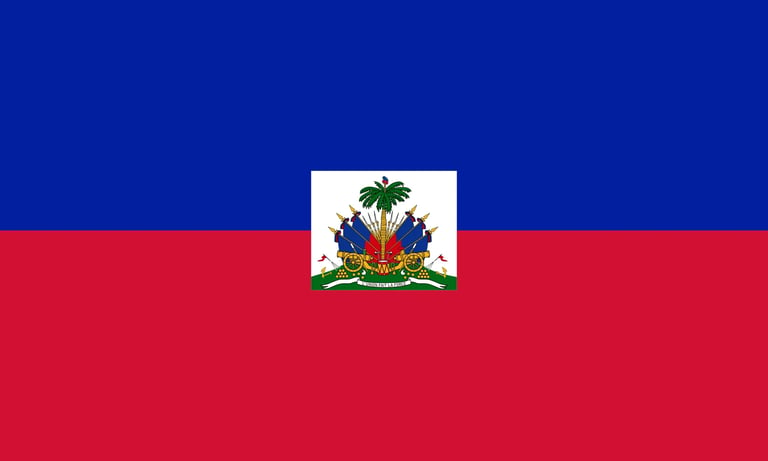Haiti
From Wikipedia


The Republic of Haiti, is a country on the island of Hispaniola in the Caribbean Sea, east of Cuba and Jamaica, and south of The Bahamas. It occupies the western three-eighths of the island, which it shares with the Dominican Republic. Haiti is the third largest country in the Caribbean, and with an estimated population of 11.4 million, is the most populous Caribbean country. The capital and largest city is Port-au-Prince.
The island was originally inhabited by the Taíno people. The first Europeans arrived in December 1492 during the first voyage of Christopher Columbus, establishing the first European settlement in the Americas, La Navidad, on what is now the northeastern coast of Haiti. The island formed part of the Spanish Empire until 1697, when the western portion was ceded to France and subsequently renamed Saint-Domingue. French colonists established sugarcane plantations, worked by slaves brought from Africa. In the midst of the French Revolution, enslaved persons, maroons, and free people of color launched the Haitian Revolution (1791–1804), led by a former slave and general of the French Army, Toussaint Louverture. Napoleon's forces were defeated by Louverture's successor, Jean-Jacques Dessalines (later Emperor Jacques I), who declared Haiti's sovereignty on 1 January 1804, leading to a massacre of the French. Haiti became the first independent state in the Caribbean, the second republic in the Americas, the first country in the Americas to officially abolish slavery, and the only country in history established by a slave revolt. The first century of independence was characterized by political instability, international isolation, crippling debt payments to France, and a costly war with the neighboring Dominican Republic. Political volatility and foreign economic influence prompted U.S. occupation from 1915 to 1934. A series of unstable presidencies gave way to nearly three decades of dictatorship under the Duvalier family (1957–1986), which brought state-sanctioned violence, corruption, and economic stagnation.
Following a coup d'état in 2004, the United Nations intervened to stabilize the country. In 2010, Haiti suffered a catastrophic earthquake, followed by a deadly cholera outbreak. With its deteriorating economic situation, the country has experienced a socioeconomic and political crisis marked by riots and protests, widespread hunger, and increased gang activity. As of May 2024, Haiti has no remaining elected government officials and has been described as a failed state.
Haiti is a founding member of the United Nations, Organization of American States (OAS), Association of Caribbean States, and the Organisation internationale de la Francophonie. In addition to CARICOM, it is a member of the International Monetary Fund, World Trade Organization, and Community of Latin American and Caribbean States. Historically poor and politically unstable, Haiti has the lowest Human Development Index in the Americas.
Nassouh GSPI
Assessing global strength through various metrics.
contact us
gspi@nassouh.com
© 2025. Nassouh, All rights reserved.
